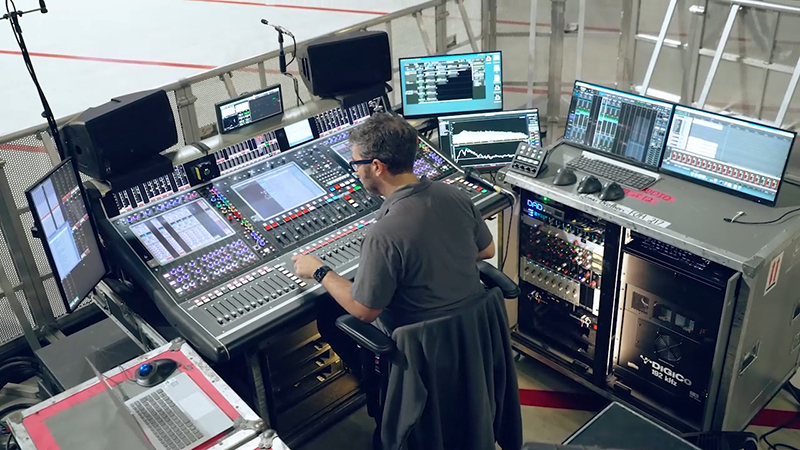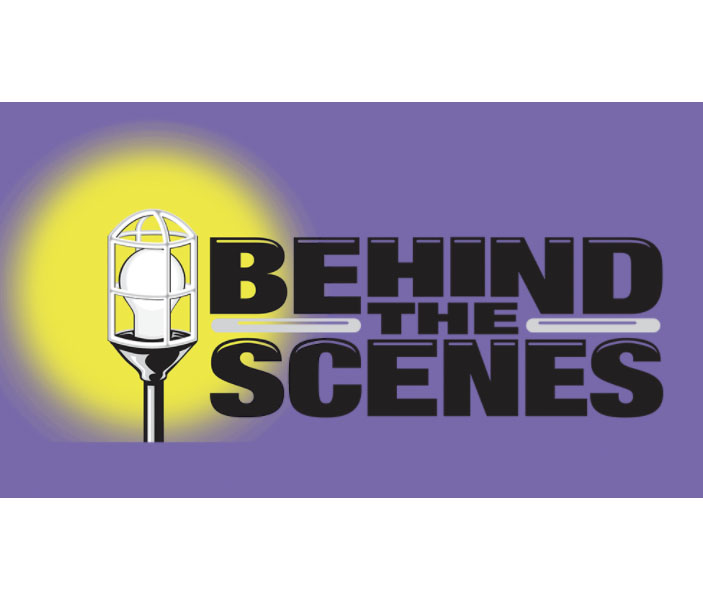LONDON — When Tom Hackley, a final year student at the University of London’s Central School of Speech and Drama (CSSD), was tasked with designing the sound for a production of the musical Company, he was also given the opportunity to get hands-on experience of a new piece of equipment on the production. Mindful of his transition into a full-time freelance sound designer, Hackley chose DiGiCo.
“Gregg Fisher, lecturer in theatre sound design, was keen for us to learn a new piece of equipment,” Hackley says. “I’ve been using digital consoles for seven years now, but I had never been ‘hands-on’ with a DiGiCo console. So, while I still had the support of the academic environment, I felt it was the perfect opportunity to add another string to my bow.”
Gregg Fisher contacted DiGiCo’s James “Digger” Bradley to arrange for Hackley and four of the key sound personnel working on Company to pay a visit to DiGiCo’s Chessington headquarters. Here they were offered a day in the company’s training room and given the choice of which console to learn.
“We settled on the D5T because it’s the most theatre-orientated desk,” says Hackley. “I was really impressed with DiGiCo’s approach. There was a lot to learn in a day and they warned us that the way to really learn the desks is to use them on our own shows. But the idea of the training was to see how the operating system worked and it was very hands-on.
“There were three of the company’s staff present and they showed us a few things, then it was over to us. We were invited to spend the rest of the time on the consoles, with the staff there to answer questions and show us how to do things if we got stuck.”
“It was a lot quicker to get used to the console than I expected, it’s a really intuitive operating system,” Hackley says.
“Because it works in the way of an analogue desk, I found I could think about the effect that I wanted to create, not have to concentrate on how I wanted to create it, which is something I think hinders sound design quite often with other digital consoles. You end up spending too much time thinking about the technical implications of what you’re doing.
“However, the DiGiCo operating system is so flexible, I found that I could think a lot more creatively.”
As it turned out, space limitations at CSSD’s Embassy Theatre meant that it was a DiGiCo D1 that Tom and the team used for the production of Company, but what they had learned of course transferred seamlessly to the different console.
With a three-piece band, 16 channels of radio mics, four channels of radio in-ear monitors and 16 tracks of effects playback from a PC running Stage Research SFX5 software (plus a second identical SFX system for full redundancy), it was a reasonably complex production, made more so by the fact that it was being mixed to a full d&b surround system, with most of the 23 speakers being time delayed within the console.
“I pre-plotted everything using DiGiCo’s offline software on my laptop, then zapped the show over to the desk, which saved a lot of time. Once we were in the venue, it was then just fine tweaking,” says Hackley.
“I had very little time to work with the band, so that was quite stressful. But the D1 is so flexible and intuitive, I never had that worry of ‘Will I be able to find this facility?’ which you so often get when learning new technology.”
Being in the education environment meant that the production had the luxury of being able to use two FOH engineers — one mixing the radio mics and the other everything else — and, with one page on the D1 dedicated to the radio mics, it was very straightforward for two people to work on it at the same time.
“The sound quality was excellent, the D1 complemented the d&b system really well and we had a lot of good responses from people,” says Hackley. “I’m sure a lot of us working on the show had never experienced sound quality like that before because it’s only usually available to really high end productions.
“The desk also felt like it was high quality. Some high-end digital consoles feel very plasticky and not very robust, but the D1 was completely the opposite. The touch screens are also very responsive, which isn’t always the case with other digital desks.”
Ultimately, he feels that taking the chance to learn the DiGiCo operating system can only improve his career prospects now that he has graduated and a freelance sound designer
“People seem to be starting to use DiGiCo a lot more in theatre now,” he says. “For example, for a venue like the National Theatre to turn down more ‘traditional’ theatre consoles to use DiGiCo really says something.
“I think I’ve timed it right to have learned and used DiGiCo. Hopefully my knowledge of the consoles will bring freelance opportunities along.”
ACTION ITEM:
For more information, please visit www.digico.org



